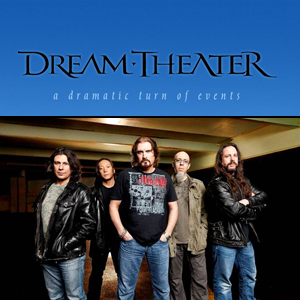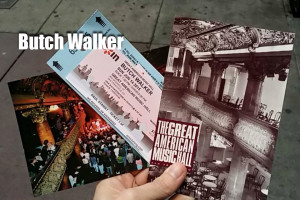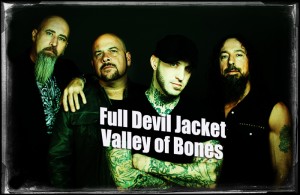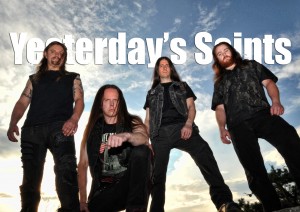Giving A Face A Name: A Conversation with Anberlin
21 min read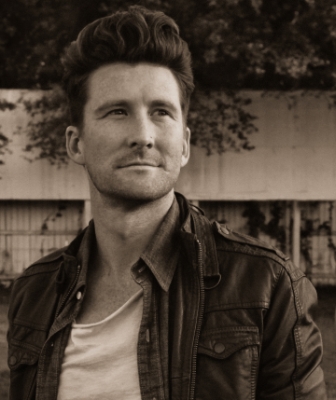
[Ed. Note: We continue Human Trafficking Awareness Week at C6M with a conversation with Stephen Christian of Anberlin. Not only a talented musician, Stephen is also the co-founder of Faceless International, an organization that aims to defend the plight of exploited people worldwide who have gone faceless and unknown for far too long. Be sure to come back tomorrow when we talk to Faceless International.]
Closing in on Anberlin’s fifth release Dark is the Way, Light is a Place pegging Anberlin is a bit of a challenge. On the one hand they are the embodiment of what hard work and dedication can do for a band that humbly began their career on Tooth & Nail. After all, Tooth & Nail is just a small independent label known more for signing talented bands but not necessarily for fostering these bands to the next level. And while they garnered a fair amount of acclaim and fans through grass roots marketing, Anberlin’s popularity continues to grow. Now with Universal Republic, they face new challenges and higher expectations that naturally follow them after the big success of New Surrender that also included the number one single, “Feel Good Drag.” On the other hand speaking with their lead singer, Stephen Christian, you get the idea that they have higher expectations of themselves. In other words, they are acutely aware of their place in this world and aren’t just focusing their attention on the chart topping songs that they’ve had or relentless touring that they do. Already a philanthropist, Stephen Christian is also attempting to spread the word on the human slave trade too with an organization that he co-founded called Faceless International. In any case, if you thought that rock stars are all complete egomaniacs, listening to Stephen is a nice surprise as to the intelligence and depth that some of them can express themselves – not just through the art of conversation, but what they’re willing to do to change the world.
C6M: Hi Stephen.
Stephen Christian: Hey, how are you?
C6M: Good. Thanks for taking my call.
Stephen Christian: Not a problem, Paul.
C6M: So, how is Europe? You’re currently out in Europe and touring, how is that going?
Stephen Christian: Yeah. It’s going unbelievable, like this is our first time to Central Europe, like we’ve been in the UK and those parts, but never have we gone kind of into this central part. So, we’ve been to Sweden, and right now we are in Germany, and then we’re heading off to the Netherlands, and Amsterdam, so it’s been incredible, just the different culture, it’s a different world, and I love it. It’s unbelievable.
C6M: How are you guys being received out there? I mean is it like you’re trying to find a whole new audience out there or are they already familiar with Anberlin?
Stephen Christian: Well, that’s the thing. It’s like we thought we were going to come here and basically start from square one, just come here and introduce ourselves. The positive side of illegal downloading is that it opens up a world of new fans, regardless of how much you’ve toured there or how much you’ve tried to expose your music to the country.
So, like our first day in Sweden, we played a festival and about 2500 people showed up for us for our performance that first night, and actually headlined a festival which is strange in the fact that we’ve never even seen Sweden before, and so the fact that like we just flew in and headlined our first time there, it was pretty amazing.
So, like even in Germany, like last time we played in Cologne, and we sold out the show and people were singing along, and it was just unbelievable. So, the reception has been absolutely like just flooring. I would have been stoked for like 15 people to show up, I honestly would have. And just the fact that more than 15 people are coming, it’s pretty incredible.
C6M: That’s great. So, when do you guys get back to the States?
Stephen Christian: We get back — I get back September 1st, I’ll get back September 1st.
C6M: And then you’ll be touring out here?
Stephen Christian: Yeah. Basically like we just pick up right from there, do a lot of in-stores and festival in New Jersey and just start the machine right back up.
C6M: Right. So, let’s talk about the new album, Dark is the Way, Light is a Place, starting with the title. I had heard that you got it from a poem, was that…?
Stephen Christian: Yes. I felt like this was almost a contradiction in music in the fact that like even though some of the lyrics presented some type of like hope or meaning or just kind of encouragement to persevere, I mean still the music remains kind of dark and ominous.
So, for me, it was just kind of like — after our keyboardist Kyle Flynn kind of exposed me to the poetry of Dylan Thomas, I realized like that in the same light I felt like this record was going, its poetry was in the same way.
So, that I felt like the contradiction and the Dark is the Way, Light is a Place kind of float perfectly with what we were trying to achieve on the record. So, it just seemed perfect, it just seemed kind of destined.
C6M: Right. So, what would you say is different and what’s the same about the music on this album? I mean production wise you worked with Brendan O’Brien, I mean so you’re definitely getting a lot more expertise this time around in terms of technically speaking, but how about thematically?
Stephen Christian: Right, yeah. I think that is kind of like the major change in the way that this record is going to — it was not only just presented, but actually just — I think that’s the biggest change. Brendan just completely revolutionized our band, I mean just completely changed around our [inaudible]. I’m sorry, these doors are not new.
In a way that like he absolutely challenged us to take what we have already had in place for seven years now, and make it the absolute best that we can possibly be. I mean here’s a guy who’s worked with like Bruce Springsteen and Pearl Jam and Stone Temple Pilots, Rage against the Machine.
I mean when you’re working with that kind of caliber producer, you kind of like step up your game, and I think that’s what happened on this record, is that we feel like we were absolutely challenged.
I think that Brendan saw that we had a lot of potential, and we just needed a little guiding, and with his help I think that we’ve just made the best record that we’ve made in our career.
C6M: Right. Well, let’s talk a little bit also about some other people that have helped you out. I heard also through one of the other interviews, that you talked a lit about Butch Walker helping you with some lyrics along the way.
Stephen Christian: Yeah, yeah.
C6M: Yeah. What was that like? Because he’s one of those guys that I always felt was like the best kept secret in the music business, that shouldn’t be a secret.
Stephen Christian: Yeah, yeah, and if anybody has ever seen his live show, oh my gosh, just mind boggling. That guy is a genius, not only a great writer, but just a great performer.
Yeah, well, I got a chance — last record went — New Surrender that we put out in 2008, I kind of went through a mental trauma in the fact that like the weight of that record, putting out that record just got to me, like I just felt like here we are just newly on a major label, and I just felt kind of like crushed by the weight of the pressure from like expectations from fans and the label.
So, I sought out to work with some different writers, and so I got a chance to work with Dan Wilson, who was the singer of Semisonic, and Butch Walker. I learned a lot through them, through the both of them just about how mentally they go about the writing process.
So, yes, those songs appeared on New Surrender, and I feel like I still took like some of their suggestions and kind of applied it onto how I write and how I did write this last record.
C6M: Well, let’s talk a little bit about the transition from leaving Tooth and Nail and going to any new label. I mean now that you’ve had a couple of years to process some of the differences, what opportunities you think you’ve gained with Universal Republic that you didn’t have with Tooth and Nail?
Stephen Christian: Well, I think that Universal Republic speak softly but carries a big stick in the fact that they are the biggest record label in the world and they do have artists that — I mean they’re multi-million selling artists, so I think things like Brendan O’Brien would never, ever, ever have been possible if we were still on Tooth and Nail.
I mean that’s kind of out of their thinking, that’s out of the logic, and so I feel like with the financial backing of Universal Republic, we were allowed to have gigantic opportunities, even working with Neal Avron, who did our last record, New Surrender there in California, I don’t think could have been a possibility if we were still on Tooth and Nail.
Some of the major differences are the fact that like Tooth and Nail are so small that everyone at the label was like friends of ours. Like we love those guys, they’re still some of my great friends. And Universal is a little more impersonal, it’s a little more of a company; it’s a business, which is great.
There are positive aspects to both. Because when you work with like a company, when you work with a business, you don’t feel bad when you have to ask for things like “Hey, I need these tours,” or “I have to go on tour,” whereas on Tooth and Nails, it’s kind of just like, well, fighting tooth and nail for what you had to have to survive as a band.
So, that’s some of the biggest differences, but I would not have traded the way that things have turned out for anything. I think Tooth and Nail was an amazing, amazing record label to start my career at, and Universal Republic is going to be the best possible end result to end my career with.
C6M: Well, I mean going along with that, I mean talking about your band in the past versus today; I mean you’ve come to Universal with sort of a built-in fan base in some respects, thanks to that label in some respects, whether you’re working on a smaller dime and now working on a bigger dime.
But how other things have changed? Before you had to — it seemed like you guys had to work a lot harder at the grassroots level, whether it was being accessible online, having blogs, where you got out there and actually blogged online. Has that changed much?
Do you guys change your approach on Twitter, Facebook or has that pretty much stayed the same? Because if I’m not mistaken, at one point, you posted out there that you wanted people to text their numbers so you could call them personally.
Stephen Christian: Yeah, yeah. I mean the thing about any band out there, my biggest suggestion is, treat it like it’s a DIY label, a do-it-yourself Punk Rock small label, and the fact that like go out there and be your best marketer, and it’s not all about marketing.
For me, it’s about that the bigger a band gets, the bigger and the greater the chasm between me and like the fans become, and I don’t want that. I started to see that with the growth and the expansion of the band. It just felt like we were alienating and leaving people behind, and I didn’t want it like that.
So, that’s why we started the YouTube channel, and the Facebook and the Twitter, and we still have MySpace, and iLike and all these different avenues of trying to reach out to the fans. So, none of that has changed.
I feel like we’ve kept Anberlin in shape, in a new place, in the same place where it was like five years ago. We just added a record label that had the capacity to push something like Feel Good Drag on the radio and make it a number one song in the country, like that’s something that we couldn’t have done on our own and that’s something that Tooth and Nail couldn’t have done.
So, for us, we wanted to stay true to what got us where we are. We didn’t want to like put our feet on the table and be like, “We’re on a major label now, so sit back and enjoy the ride.” For us, it was like we have not changed up our touring schedule. We still tour nine to 10 months a year.
That’s something that we did during the Tooth and Nail years, and that’s something that we continue to do. I don’t know when our next actual long break is, till — I think our next actual like more-than-a-month break is next summer.
C6M: Right, wow.
Stephen Christian: That’s like I wouldn’t have it any other way, because I want to keep going in the way and the direction that we’re heading.
C6M: Alright. Well, let’s talk a little bit about your band then in the context of the current music scene, social climate, whatever you want to label it. Do you guys feel like at times you’re under a different kind of scrutiny than the average band given your past?
I was listening to one of your interviews and you were saying how important it was to come from a place with honesty. Do you feel like that honesty is a high price?
Essentially what people discover, that you might have been labeled a Christian band at some point and that you guys are all — at least people who have faced and have a certain point of view? Do you feel like that you’re under a different lens or so to speak, a different magnifying glass?
Stephen Christian: Absolutely. I mean think that like sadly the stigma of like “Christian music” is that one of like preaching sterile adult contemporary music that has no substance or originality, and for good reason, because that’s just the summation of the majority of Christian music out there, and so that’s fair enough.
What hurts is the repercussions for us is the fact that when somebody goes — when people start out the interview with — or like the journalists start out with, “Florida Christian rockers Anberlin are going to set to take stage,” it’s just kind of like you just shutdown like 90% of that audience, because they don’t — the first thing that goes through their heads is like Amy Grant, Michael W. Smith or something of that sort.
That just sucks. It just feels like you’ve just really tried to — you’ve just pegged us in this very small genre, not allowing the average person to even give us a chance. I think that I’ve never like sat down with a band and gone, “Oh, I would like The Killers, but they’re Mormons, so I’m not even going to give their music a chance.”
For me, it’s just like if I like it, I’m going to listen to it. If I don’t like it, I don’t listen to it. I guess that’s the chance I want to be given. I just want everybody to listen to Anberlin.
If you hate us, then that’s fine as long as you gave us a chance not because of our genre, and not because of the labels that journalists put on us, but because of like whether the music is good or bad, and that’s what I want to be judged on.
But I don’t feel alone in this, like Bob Dylan was labeled Folk Rock and other bands — everybody has this — Pearl Jam is forever Grunge Rock. These are labels that obviously the bands themselves did not give. I mean Sunny Day Real Estate is not emo.
I mean it’s absolutely original, amazing, mind numbing rock, but people need — we need boxes as humans. We need these little compartments to place objects in, and much to the bands’ dismay. I mean Bob Dylan hates being called Folk Rock, folk music. So, I don’t feel alone. I don’t feel like I’m a pioneer on generic subtitles that journalists interject.
C6M: Right, right. Well, you know, they say it was some — there is foundation obviously, because you’re not shying away from it at the same time.
Stephen Christian: Absolutely. I definitely don’t go out there and — number one, I don’t go out on stage and start preaching, and then also we don’t play churches or Christian gatherings. We go out with anybody. We’ve been out with My Chemical Romance and All American Rejects.
I mean we’ve been out with Nine Inch Nails and Alice in Chains, it’s just we don’t limit ourselves to like, “Oh, but you’re not in this particular phase, in this particular genre, then we refuse to have our name coincide with yours on a poster.”
C6M: Sure, sure. Well, I was talking to Mike Hranica from The Devil Wears Prada, and he was talking about something similar, being a person who in facing the music industry, and he was surprisingly positive.
He’s another one of those bands that charts highly, has done big festivals, and I asked him about how they fit in, and if they felt that there was that negative stigma. He said at times, but he was surprised actually at how much they did fit in to the entire scene. Do you find that you’re surprised more often than you’re not?
Stephen Christian: Absolutely, I mean definitely. I think that even traveling internationally, it seems like — especially Europe and Australia, they don’t hear — I mean there’s a festival in New Zealand called Parachute, which is “Christian festival” but any band and every band plays. They don’t care.
It’s more of an American — I don’t want to say dilemma, but it’s more of an American ideal, like the negativity around Christian music, but I’m absolutely surprised, because I mean artists are known to be open minded.
Painters, artists, like that culture just spawns like a liberal free thinking, like all encompassing, and so we don’t get it in the art community. We don’t get it in the — it’s more of the outside, outside the art community.
Yeah, but I definitely feel that more times than not, no one cares. They just want to know if it’s good music or not, and they don’t like check out our Wikipedia page before they check out our iTunes.
C6M: Right, right. Well, looking back, now that you have the benefit of a little bit of success, what do you think the biggest misconception you’ve had about where you are now versus who you were then and what you thought it’d be like to be where you are now, and having traveled and seen the world a bit. I mean what’s the difference between I guess dreaming about it and the reality?
Stephen Christian: Nothing. I mean I could never have dreamt this life. I can’t. It’s hard to imagine that if I went back to my high school years, and my guidance counselor just told me that I probably am not smart enough to make it into college and like, “Okay, you might as well just go get a job basically.”
And then I sat myself down, I was like, “Listen, one day someone is going to ask you a question, an interview or he’s going to ask you what are the misconceptions of a — would you ever dream of this life?”
“Let me tell you about the life, you are going to be on the phone with him in the middle of Germany after just playing a Sweden festival, like headlining a tour with your second radio single going big.”
All these things, I would never have believed in a million years. Like what I dreamt as a child, I wasn’t even capable of dreaming this big. So, honestly, nothing, it was nothing. There was no misconception. This is much greater than I ever thought, that life could ever be.
C6M: Well, that’s great actually. That was not the answer I was expecting, but that’s awesome. Let’s talk about some of your musical influence in the context of your upbringing. You had mentioned at one point that you were a little sheltered in terms of what you were allowed to listen to and things like that.
So, what have you gone back to and rediscovered or discovered for the first time that sort of changed your world view, that you might have been afraid to listen to when you were younger?
Stephen Christian: Well, I think that yeah, that’s — I guess if there is a bright spot in being sheltered, it’s the fact that like every genre is a whole new genre. It’s funny how that’s like right out of high school when it was kind of my turn to explore my world and get my world view, the first thing I did was just like started with the 80s.
That, I think that’s where my mind gravitates, when you said the word influence, it was just like the 80s, like I love it, and maybe it’s a naïve innocence of that era, of my life, but things like The Smiths and Morrissey and Depeche Mode and Cure, kind of like — or Death were massive influences early on.
The melody lines, the lyrics, I think it all — and then from there, I went on exploring, and it just kept going back and back until I ended with blues, Robert Johnson and Muddy Waters and jazz, and just Dave Brubeck and John Coltrane, Nina Simone, I mean all these people just — it’s like someone putting on glasses for the first time that’s never really been able to see. I think that’s what it felt like for me. But as far as influences go, I think the 80s is the biggest influence to date.
C6M: Right. So, Bono was talking about faith inspired lyrics, and he was quoted in U2 at the End of the World as saying that they’ve found different ways of expressing it and recognized the power of media to manipulate such signs and maybe we have to draw our fish in the sand. It’s there for people who are interested, and it shouldn’t be there for people who aren’t.
What do you think of that quote? And is that a model that you sort of feel is for you guys as well, when it comes to what you write about and then how you present your music?
Stephen Christian: First of all, that dude is amazing, like how he comes up with some of the quotes that he came up with. If you ever get a chance, you should YouTube his entire speech at the end of NAACP Awards. It sent shivers down my spine.
And that is an incredible quote, like to put the fish in the sand and for those — absolutely, as far as like faith and lyrics, I don’t sit down to write any one song. I don’t sit down to write a song, “Okay, this is going to be about God, and this song is going to be about a girl.”
I just sit down and write, and kind of like the overflow of the heart, like so I write lyrics. But I think that’s a great quote. Like for me, it’s just like this is — my faith is more important than my music, so if it came down to like choosing one, there is no choice. It’s that integrated into my life, that faith is the most important thing, like the music world is going to be here, I know for me, my band. It may not even see another decade, but my faith hopefully will cure me through the rest of my life.
So, I’m not about to compromise my beliefs so that I can look better to the journalists or the public or a promoter or a publicist. That’s not my intention, but yes, if anybody like had questions at a show, and they want to talk.
On more than one occasion — like I had this blog called modesty.blogspot.com and it has my email address and more than five dozen times like people will write about my faith and ask me questions about it.
And I’m very — hey, here is exactly what I believe, take it or leave it. I’ve had some just great intellectual conversations through it, but again, I think I’m pretty close to that. I’ll have to analyze that a little more but drawing a fish in the sand for those who want to see and for those who do not, that’s fine too.
At the end of the day, if they don’t choose my faith or if they don’t ever have questions, maybe in some small way I can inspire them in a positive manner, so to not only live their life better, but maybe live their life to the fullest through positive lyrics, through manipulation of media and the lyrics.
C6M: Right, right. Well, Bono has “One”, let’s talk about some of the causes of Anberlin and close with that, such as Faceless International.
Stephen Christian: Yes, yes, I mean that’s a direct offshoot of my faith, and the fact that like again, it’s not like a Christian organization, because for us like human trafficking affects Buddhists and Muslims and atheists and agnostics all alike. So, it’s not — it’s the reason I do it.
But for us, Faceless International is just plain and simple, like we just want to end and prevent slavery, and we’ll try anything we possibly can, whether it’s working with other organizations, whether it’s taking teams over to places like India, Ukraine, Guatemala to Ecuador, Haiti and working on the ground with people that are in the trenches fighting human trafficking.
It’s an incredible organization. I mean everybody that works there are volunteers and people have given up full time jobs to work in Nashville for Faceless International. So, it’s incredible. I can’t believe how much this cause kind of rallies people to motion.
I mean children deserve the best life possible, and the fact that right now even in the States — there are more slaves in the United States right now than at the pinnacle of the Civil War, and yet we’ve turned such a blind eye or we just don’t want to hear about it or we just don’t believe that it happened.
But Hillary Clinton, in the last report she did, said they guesstimate 600,000 slaves in the United States. Even if that’s inaccurate, like even half of that, 300,000 is just atrocious, just atrocious.
C6M: Absolutely. Okay, let’s close with this then. What’s your current guilty pleasure, musically speaking?
Stephen Christian: Guilty, current — I don’t know if it’s guilty, because I haven’t heard much about him like as far as whether he’s like — or whatever the case is, but I really like Drake. I mean I’ve really just — way into his stuff, just bought his record and I just think it’s pretty unique, it’s clever. I think he’s got pretty great lyrics, and all around I’m just a fan. So, I don’t know if that’s guilty though. Maybe he’s like — maybe he’s cool, so I don’t know.
C6M: Maybe a little bit, since he’s a Degrassi kid, but you know, it’s a whole other story.
Stephen Christian: Yeah.
C6M: Alright, thank you Stephen so much for talking to us, and we wish you a lot of luck on the album and in the coming months on the rest of your tour.
Stephen Christian: Good deal. Thank you so much, I appreciate it.
C6M: Okay, bye.
Stephen Christian: Bye.
The thing about talking to Stephen Christian, after having a few weeks to take it all in, was that it made me supremely aware of the needs that exist in this world that go beyond my own. After our conversation, I immediately got in contact with Faceless International to speak with another member of his organization to learn more about the slave trade and the role that other organization had in educating people about the world wide slave trade that still exists on planet earth, but also the organizations that were contributing to perpetuating the slave/sex trade such as Craigslist (who only just recently censored their adults services section – and only after much protest). It made me realize that there’s more to life than music, but was also nothing like music that helped to create a dialogue that I can truly say changed the way that I thought about this life. If you have questions on whether or not music actually could change the world – it does. One listener and one reader at a time. It was the realization of that one thing that helped me to believe that maybe that’s why I do what I do too.
Anberlin’s new album is out on September 7th, 2010. I got to listen to it and it’s really an excellent album from top to bottom. So don’t forget to check out Dark is the Way, Light is a Place. And be sure you also visit Faceless International and organizations like it to see what you can do to end world wide slavery. And as usual, if you do, let ‘em know that Paul sent ya.



